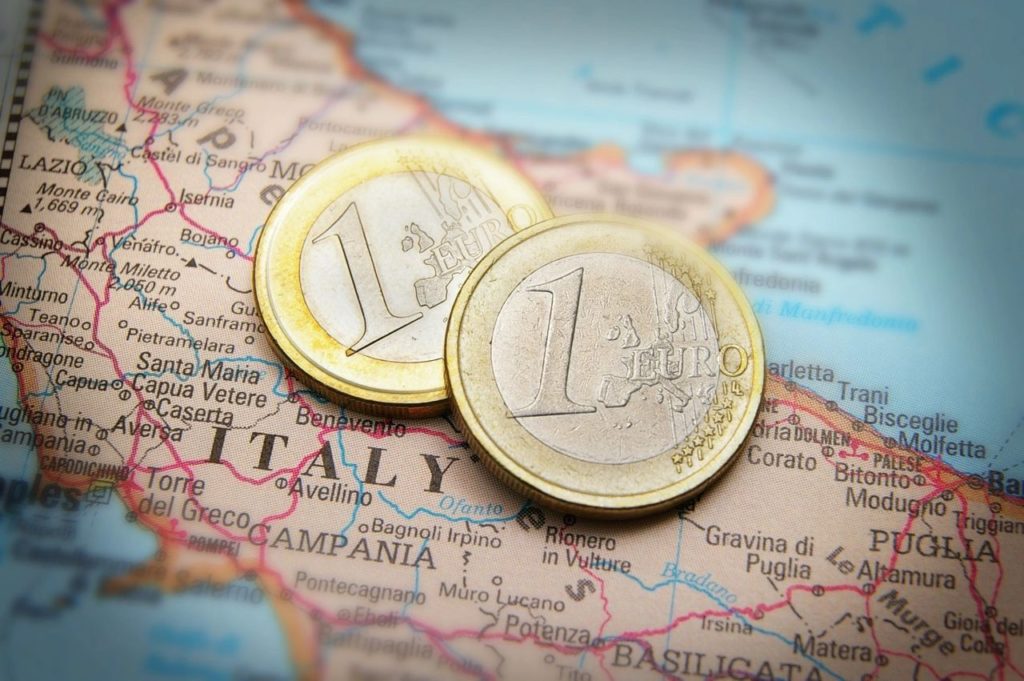What Taxes Will I Have to Pay as an Italian Citizen?
Many people who are considering dual Italian citizenship wonder what taxes Italian citizens need to pay. Whether or not you will need to file taxes in Italy will depend on whether you are living in Italy for more than half the year and what steps you take to define your tax status.

Italy is such a beautiful country, so it comes as no surprise that many Americans, and tourists from other places, head there and never return back home. If you’re an American living in Italy, you will want to ensure that you are compliant with tax laws in the country.
Where You Reside Matters
If you reside in Italy for more than 183 days of the year, you will be considered an Italian resident for tax purposes. The Italian Agency of Revenue (Agenzia delle Entrate) will use these factors to determine if you are residing in Italy:
- If you have an established abode, which classifies you as a resident
- If you are considered domiciled in Italy by establishing a center of interest and business
- If you are registered in the records of any town or municipality as an Italian resident
Tax Treaties Help Protect Against Dual Taxation
Both the U.S. and Italian governments have tax treaties in place that help protect citizens from double taxation. If you do need to pay taxes in both countries, tax treaties offer these protections:
- Foreign Earned Income Exclusion
- Tax credit on remaining income based on taxes paid to a foreign government
- Exclusion on foreign housing—income used for household expenses can be excluded as taxable
The Differences Between Resident and Non-Resident Taxes in Italy
The good news is that if you live in the U.S., it’s very unlikely that you’ll have to worry about paying taxes in Italy. However, if you’re a permanent resident of Italy, you’ll be required to file tax returns with the federal government each year that you reside in the country. Residents and non-residents may be required to pay taxes in Italy.
Tax Information for Italian Residents
Italian citizens who spend at least 183 days in Italy are considered tax resident individuals. This means all their foreign income will be taxed in Italy, no matter where they earned that income. This worldwide income tax policy requires that these individuals declare all their foreign investments on their Italian tax return. They are responsible to pay ‘wealth tax’ on income earned from real estate and investments outside the country.
Tax Information for Italian Citizens Who Are Not Italian Residents
Non-tax resident individuals are those who reside in another country like the United States. They might hold Italian citizenship, but they are only responsible to pay taxes in Italy for work activities performed in Italy. If you are responsible to pay taxes in your country of residence, and you did not generate income in Italy, you will typically not have any Italian taxes to pay.
Tax Rates in Italy
Taxes in Italy include the personal income tax (PIT), which is also called Imposta sui redditi delle persone fisiche (IRPEF). Residents are subject to a national income tax, a regional income tax, and a municipal income tax.
Income taxes in Italy are based on tax brackets. The more you make, the higher the tax rate you face. For example, if you make between EUR 55,001 to EUR 75,000, you’ll be taxed at a 41% tax rate. If you make EUR 1 to EUR 15,000, you will only be taxed at 23%. There are also municipal and regional taxes that vary by municipality but can range from 0.1% to 2.03%.
- Interest, dividends, and capital gains are subject to a flat tax of 20% if they are considered non-qualified.
- Investments of over 25% in unlisted companies are taxed at the higher regular tax rate.
- Non-cash compensation like company cars and housing allowances are also taxable.
- There are currently no gift or inheritance taxes.
- Real estate or property taxes are set by each municipality and range between 0.4% and 0.7%.1
Available Deductions
Italian tax deductions are the best way to reduce your taxable income. Understanding which deductions apply to your situation will increase your chances of not owing at the end of the tax year. The Italian government offers many different deductions, including:
- Tuition expenses for secondary education
- Social security contributions
- Family allowances
- Charitable contributions
- Alimony paid
- Interest paid on principal residence loans
- Medical expenses greater than EUR 129.11
Filing Your Taxes in Italy
Once you’ve determined your taxable income and any applicable deductions, the next step is to file. Taxes in Italian are due between May 1st and June 30th. If you owe taxes, 40% of your total amount owed is due by May 31st. You have until November 30th to pay the remaining 60%.
Tax extensions are not offered, and penalties for filing or paying late can be quite high, ranging between 120% and 240%. You will be required to report assets held outside the country and any transfers of cash or investments into or out of Italy. These assets and investments are not currently taxed, but there are significant penalties for failing to report them.
Where to Pay Your Italian Taxes
You can pay your Italian taxes online or by mail with the Italian Revenue Agency, using Redditi PF and form 730. The online software is called RedditiOnLine Pf (IT), and it will facilitate filing electronically and generate a payment form known as F24.
Many Italian residents make use of the pre-completed tax form that is provided to them by the Revenue Agency, containing their information including eligible deductions. To use the online tax system you will need:2
- A Public Digital Identity system login
- A Revenue Agency online services login
- An Electronic Identity Card (CIE)
- A National Services Card (CNS)
Your Italian Tax ID Number (Codice Fiscale)
Whether you expect to pay taxes or not, every Italian citizen is issued a codice fiscale, or Tax ID number. This is similar to a social security number for United States citizens. Citizens who were born in Italy were assigned this number at birth, but, if you obtain Italian citizenship or dual citizenship, you will need to request your own codice fiscale to perform basic financial functions in Italy like opening a bank account.
What if You Are Self-Employed in Italy?
If you are an Italian citizen paying into the Italian social security system (INPS), you will not be required to also pay self-employment taxes in the United States. If you are working in Italy and are not an Italian citizen, you will almost certainly have to pay into both systems under the law.
Will You Need to Pay Taxes in Italy as a Dual Citizen?
If you spend less than 183 days of the year in Italy and do not own property or other significant assets there, and you are a resident of another country, most likely you will not need to pay any taxes in Italy. If you work in Italy, you will only be responsible to pay income taxes on that amount.
Dual citizens might sometimes receive a notice of tax liability from Italy, even if they are living abroad, if their names appear as a listed resident in an Italian city or municipality or if they own property in Italy. You can avoid Italian tax resident status by signing up with the register of Italians living abroad or AIRE. You will still owe any applicable property taxes to the Italian government.

Understanding Italian tax laws is one of many steps to becoming a citizen. If you’re interested in obtaining Italian citizenship, we can help you determine if you are eligible. We offer a comprehensive consultation to identify your exact needs and essential services to make the process of becoming an Italian citizen a breeze. To learn more about what taxes you may need to pay as an Italian-American dual citizen, contact us online or give us a call at (877) 456-1660 today.
Sources:
- https://www.taxesforexpats.com/country_guides/italy/us-tax-preparation-in-italy.html
- https://www.agenziaentrate.gov.it/portale/web/english/how-and-when-to-file-a-tax-return

